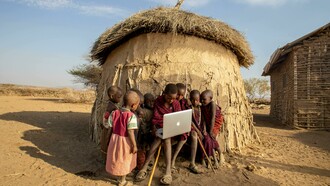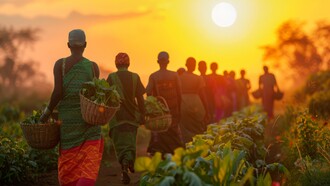The first International Politics Department was created in 1917 in Aberystwyth, Wales, primarily to study the war. From that period to the present day, the field of international relations has evolved tremendously, and the first focus on the states as the object of study has given way to a variety of objects of study and actors that are part of the international relations reality. Therefore, times of war in history bring back the study of it, regardless of the need to advance in other important fields.
Since the end of World War II, the death toll has been declining. But now, conflict and violence are on the rise: devastating conflicts in Palestine, Ukraine, Sudan, Ethiopia, South Sudan, Syria, and Yemen are some examples. International cooperation is under strain, which is reflected in the lack of effectiveness in response, prevention, and resolution of conflict and violence in all forms. The regional integration process, which was accelerated in the 1990s, is now seen to be slowing down and even reversing, and the idea of sovereign states is strong once again on the horizon.
The year 2022 was the deadliest for armed conflict since 1994, the year of the Rwandan genocide, according to the Institute for Economics & Peace (IEP). It is not just a perception in the newspapers, but increased geopolitical competition has fuelled conflict worldwide. Major and middle powers are competing for influence in regions and countries. Consequently, international challenges such as climate change, human rights violations, economic disparities, gender inequality, and political instability receive little attention from the international community.
On the matter of climate change, there is a huge gap between scientific warnings and the political actions of the international community. In 2023, the month of July was recorded with the highest temperature on record for any month for at least 120,000 years. And it is estimated to have been 1.5°C warmer than the average for 1814 to 1900, the average for pre-industrial times. The problem is that the core goal of the Paris Agreement is to pursue efforts to limit the temperature increase even further to 1.5 degrees Celsius, which seems to have reached its limit with the new scientific findings.
In the latest Conference of the Parties 28, the deal to "transition away" from fossil fuels did not include an explicit commitment to eliminate or even phase down fossil fuels. Despite being a milestone on the matter, the year 2023 is a historical year with disastrous events such as flash flooding in Africa and wildfires in Europe and North America, and with records of high temperatures, pushing the world to a new climate frontier.
The year 2023 was also marked by human rights suppression and wartime atrocities, according to the Human Rights Watch World Report 2024. The organization draws attention to the suffering caused by the renewed conflict, as seen between Israel and Hamas, and in Sudan, besides the ongoing conflicts in Ukraine, Myanmar, Ethiopia, and the Sahel. Regardless of the scenario, states continue to adopt double standards in applying human rights. Governments disregard the benefits of long-term relationships built on human rights principles to achieve immediate, short-term trade, or security gains. For example, Western governments were reluctant to push for an accountability mechanism in Sudan, unwilling to commit the resources or effort that they had devoted to a similar body for Ukraine immediately after Russia’s full-scale invasion in 2022.
The rights of women, girls, and lesbian, gay, bisexual, and transgender (LGBT) people faced reversals, as seen in the Taliban’s gender agenda in Afghanistan. We have witnessed war crimes and severe human rights abuses with the terrifying Hamas assault on civilians followed by Israel's government response, which cut water, electricity, and blocked the entry of all but a trickle of fuel, food, and humanitarian aid into Gaza. The people of Sudan have suffered because of the absence of international attention, commitment, and leadership to address the widespread abuses in the country’s conflict.
By the end of June 2023, it is estimated that 110 million people were forcibly displaced by persecution, conflict, violence, human rights violations, and events disturbing public order. One-third of all forcibly displaced individuals come from three countries: Afghanistan, Syria, and Ukraine. The ongoing conflict in Ukraine will increase this number. Globally, 1.6 million new individual asylum applications were made, the largest number ever recorded in the first months of a year.
It has been more than 100 years of creation of the first International Politics Department in 1917. But it seems it will take way more than that to let the war agenda in international relations lose its notability. But the question is how can the international community address all these challenges worldwide while still facing the classical problem of humanity known as war?
References
1 Vision of Humanity. (2023). Global Peace Index 2023.
2 United Nations Framework Convention on Climate Change. (n.d.). COP28 agreement signals beginning of the end of the fossil fuel era.
3 United Nations High Commissioner for Refugees. (2023). Global Trends: Forced Displacement in 2023.
4 Human Rights Watch. (2024). World Report 2024.















